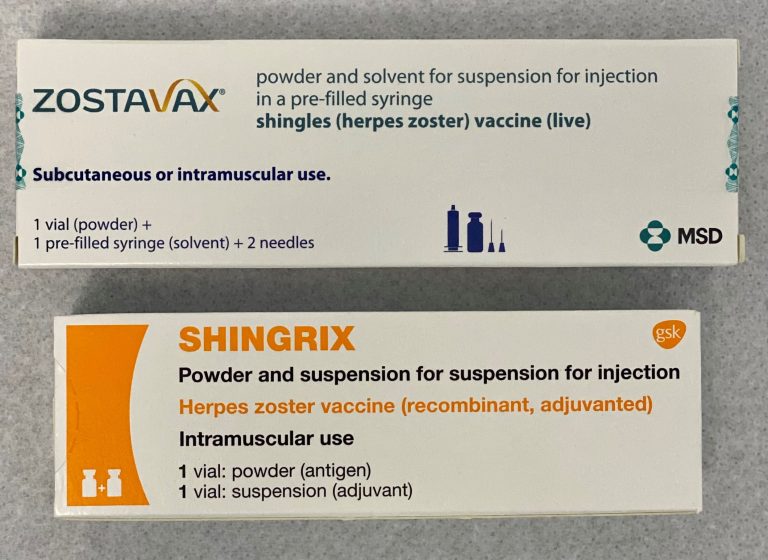GlaxoSmithKline plc (LON:GSK) and Vir Biotechnology, Inc. (Nasdaq:VIR) has announced that an Independent Data Monitoring Committee recommended that the Phase 3 COMET-ICE (COVID-19 Monoclonal antibody Efficacy Trial – Intent to Care Early) trial evaluating VIR-7831 (GSK4182136) as monotherapy for the early treatment of COVID-19 in adults at high risk of hospitalisation be stopped for enrolment due to evidence of profound efficacy.
The IDMC recommendation was based on an interim analysis of data from 583 patients enrolled in the COMET-ICE trial, which demonstrated an 85% (p=0.002) reduction in hospitalisation or death in patients receiving VIR-7831 as monotherapy compared to placebo, the primary endpoint of the trial. VIR-7831 was well tolerated. As the trial remains ongoing and blinded with patients continuing to be followed for 24 weeks, additional results, including epidemiology and virology data, will be forthcoming once the trial is completed.
Based on these results, Vir and GSK plan to submit an Emergency Use Authorization (EUA) application to the U.S. Food and Drug Administration (FDA) and for authorisations in other countries. Data from this registrational trial will also form the basis for a Biologics License Application (BLA) submission to the FDA.
The companies also announced today the results of a new study submitted and pending online publication in bioRxiv, demonstrating that VIR-7831 maintains activity against current circulating variants of concern including the UK, South African and Brazilian variants, based on in vitro data from pseudotyped virus assays. In contrast to other monoclonal antibodies, VIR-7831 binds to a highly conserved epitope of the spike protein, which may make it more difficult for resistance to develop.
In addition to COMET-ICE, the full COMET clinical development programme for VIR-7831 includes:
· COMET-PEAK: An ongoing Phase 2 trial with two parts: to compare the safety and viral kinetics of 500 mg intramuscularly (IM) administered VIR-7831 to 500 mg intravenously administered VIR-7831 among low-risk adults with mild to moderate COVID-19 and to evaluate the similarity and pharmacokinetics between VIR-7831 manufactured by different processes.
· COMET-TAIL: A Phase 3 trial expected to begin in the second quarter of 2021 in high-risk adults to assess whether IM-administered VIR-7831 can reduce hospitalisation or death due to COVID-19.
· COMET-STAR: A Phase 3 trial expected to begin in the second quarter of 2021 in uninfected adults at high risk to determine whether IM-administered VIR-7831 can prevent symptomatic infection.
George Scangos, Ph.D., Chief Executive Officer of Vir said: “These exciting data with a single antibody against a conserved epitope bring us one step closer to delivering an effective new solution to patients around the globe. The dual-action design of VIR-7831 to both block viral entry into healthy cells and clear infected cells, as well as its high barrier to resistance, are key distinguishing characteristics. These findings, paired with our pending publication of resistance data, demonstrate the potential of VIR-7831 to prevent the most severe consequences of COVID-19 and highlight its potential ability to protect against the current circulating strains of the virus.”
Dr. Hal Barron, Chief Scientific Officer and President R&D, GSK said: “We are pleased that this unique monoclonal antibody was able to bring such a profound benefit to patients. We look forward to the possibility of making VIR-7831 available to patients as soon as possible and to further exploring its potential in other settings.”
The Phase 3 portion of the COMET-ICE trial assessed the safety and efficacy of a single intravenous infusion of VIR-7831 (500 mg) or placebo in non-hospitalised participants globally, and this interim analysis included 291 patients in the treatment arm and 292 patients in the placebo arm. The primary efficacy endpoint is the proportion of patients who have progression of COVID-19 as defined by the need for hospitalisation for at least 24 hours or death within 29 days of randomisation. Among those studied, 63% were Hispanic or Latinx and 7% were Black or African American. According to the Centers for Disease Control and Prevention these populations are approximately three times more likely to be hospitalised[1] and approximately two times more likely to die[2] of COVID-19.
VIR-7831 is also being evaluated in the outpatient setting in BLAZE-4, a Phase 2 trial sponsored by Eli Lilly and Company, designed to assess the safety and efficacy of Eli Lilly’s bamlanivimab (LY-CoV555) alone and bamlanivimab with other neutralising antibodies, including VIR-7831, versus placebo in low-risk adults with mild to moderate COVID-19.
Additionally, VIR-7831, along with VIR-7832, will be evaluated in the Phase 1b/2a National Health Service-supported AGILE trial in adults with mild to moderate COVID-19. VIR-7832 is the second monoclonal antibody from the Vir-GSK collaboration to be investigated as a potential COVID-19 treatment.
VIR-7831 and VIR-7832 are investigational compounds, not approved by the U.S. Food and Drug Administration or any other regulatory authority.
COMET-ICE clinical trial design
The multi-centre, double-blind, placebo-controlled COMET-ICE trial is investigating VIR-7831 in adults with mild or moderate COVID-19 who are at high risk of progression to severe disease. The Phase 1 lead-in portion of the trial, which served as the first-in-human assessment, evaluated the safety and tolerability of a single 500 mg intravenous (IV) infusion of VIR-7831 or placebo over a 14-day period in 21 non-hospitalised adults enrolled across the United States.
In October 2020, based on a positive evaluation of safety and tolerability data of VIR-7831 from the lead-in part of the trial by an Independent Data Monitoring Committee, the trial began enrolling patients in North America and additional sites in South America and Europe in the global Phase 3 portion of the trial. This part of the trial is assessing the safety and efficacy of a single IV infusion of VIR-7831 or placebo in up to 1,300 non-hospitalised participants globally.
About VIR-7831 / GSK4182136
VIR-7831 is an investigational dual-action SARS-CoV-2 monoclonal antibody. Preclinical data suggest it has the potential to both block viral entry into healthy cells and clear infected cells. The antibody binds to an epitope on SARS-CoV-2 that is shared with SARS-CoV-1 (the virus that causes SARS), indicating that the epitope is highly conserved, which may make it more difficult for resistance to develop. VIR-7831, which incorporates Xencor’s Xtend™ technology, also has been designed to achieve high concentration in the lungs to ensure optimal penetration into airway tissues affected by SARS-CoV-2 and to have an extended half-life.
About VIR-7832 / GSK4182137
VIR-7832 is an investigational dual-action SARS-CoV-2 monoclonal antibody. Preclinical data suggest it has the potential to both block viral entry into healthy cells and an enhanced ability to clear infected cells. The antibody binds to an epitope on SARS-CoV-2 that is shared with SARS-CoV-1 (the virus that causes SARS), indicating that the epitope is highly conserved, which may make it more difficult for resistance to develop. VIR-7832, which incorporates Xencor’s Xtend and other Fc technologies, has been designed to achieve high concentration in the lungs to ensure optimal penetration into airway tissues affected by SARS-CoV-2 and to have an extended half-life. Importantly, VIR-7832 also has been engineered to potentially enhance virus-specific T cell function, which could help treat and/or prevent COVID-19 infection.
About the Vir and GSK Collaboration
In April 2020, Vir and GSK entered into a collaboration to research and develop solutions for coronaviruses, including SARS-CoV-2, the virus that causes COVID-19. The collaboration uses Vir’s proprietary monoclonal antibody platform technology to accelerate existing and identify new anti-viral antibodies that could be used as therapeutic or preventive options to help address the current COVID-19 pandemic and future outbreaks. The companies will leverage GSK’s expertise in functional genomics and combine their capabilities in CRISPR screening and artificial intelligence to identify anti-coronavirus compounds that target cellular host genes. They will also apply their combined expertise to research SARS-CoV-2 and other coronavirus vaccines.
GSK Commitment to Tackling COVID-19
GSK’s response to COVID-19 has been one of the broadest in the industry, with two potential treatments in addition to our vaccine candidates in development.
GSK is collaborating with several organisations on COVID-19 vaccines by providing access to our adjuvant technology. In addition to work with Sanofi, our collaboration with Medicago on an adjuvanted, protein-based vaccine candidate is now in late-stage clinical trials. An earlier stage collaboration with SK Bioscience is also ongoing, with funding from CEPI and Bill and Melinda Gates Foundation, to develop differentiated, affordable COVID-19 vaccines for supply globally through the COVAX facility. The use of an adjuvant can be of particular importance in a pandemic since it may reduce the amount of vaccine protein required per dose, allowing more vaccine doses to be produced, contributing to protecting more people.
GlaxoSmithKline is also working with mRNA specialist, CureVac, to jointly develop next generation, multi-valent mRNA vaccines for COVID-19 with the potential to address multiple emerging variants in one vaccine. GSK will also support manufacturing of up to 100m doses of CureVac’s first generation COVID-19 vaccine, if approved.










































